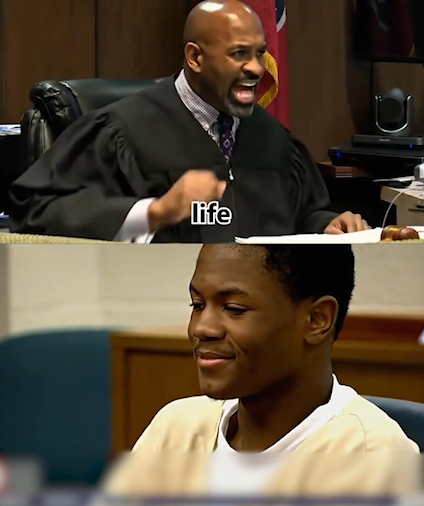
Marion County, FL — In a case that has shocked both Florida and the nation, Christopher Atkins, a 15-year-old boy, has been sentenced to 40 years in prison for his role in a 2023 triple homicide that left three teenagers dead. Atkins was only 12 years old when the crimes were committed, making him one of the youngest defendants in recent memory to face such severe charges.
Background of the Case
The tragedy unfolded in Ocklawaha, Marion County, in late March 2023. Three teenagers — Layla Silvernail (16), Camille Quarles (16), and a 17-year-old male — were found shot to death in different locations. The killings sparked an immediate investigation that quickly drew national attention due to the victims’ young ages and the disturbing details.
Authorities identified three suspects: Christopher Atkins, then 12; Robert Robinson, then 17; and Tahj Brewton, then 16. According to prosecutors, the three had been involved in gang-related activities and disputes that culminated in the fatal shootings.
Atkins’ Sentencing
On July 22, 2025, Atkins stood before a Marion County judge for sentencing after pleading guilty to one count of first-degree murder, armed robbery, and evidence tampering. As part of his plea deal, Atkins agreed to testify against his older co-defendants.
While Robinson and Brewton were both sentenced to life in prison, Atkins’ punishment reflected his young age at the time of the crimes. He received a 40-year prison term, with eligibility for sentence review after 25 years. This means Atkins could potentially be released in his late 30s, depending on future court evaluations.
Prosecutors emphasized that despite his youth, Atkins played an active role in the murders and subsequent cover-up. However, his cooperation with authorities and age were key factors in avoiding a life sentence.
A Community in Shock
The sentencing marks the end of a two-year legal process that has left the Marion County community deeply shaken. Families of the victims expressed grief, frustration, and a desire for closure.
“This is something you never truly heal from,” said one family member in court. “Our children’s lives were cut short, and nothing can bring them back.”
The case has reignited debate about how the justice system should handle juveniles charged with violent crimes. Critics argue that a child as young as 12 cannot fully comprehend the weight of their actions, while others insist that accountability must still be enforced.
The Broader Implications
The Atkins case underscores the complexity of juvenile justice in the United States. Under Florida law, children can be charged as adults for certain serious crimes, including murder. Atkins’ sentencing highlights the tension between recognizing the immaturity of youth and addressing the severity of violent offenses.
Legal experts say the case could set precedent for how prosecutors approach future instances of juvenile involvement in violent crime. “This is a reminder that the system must balance rehabilitation with public safety,” one attorney commented.







